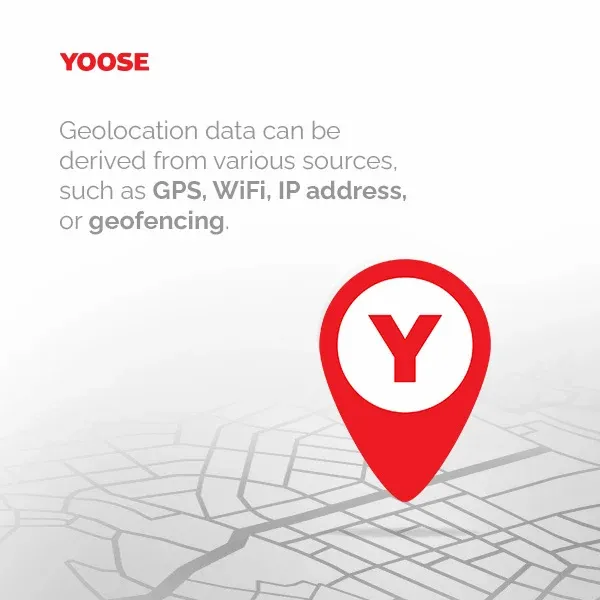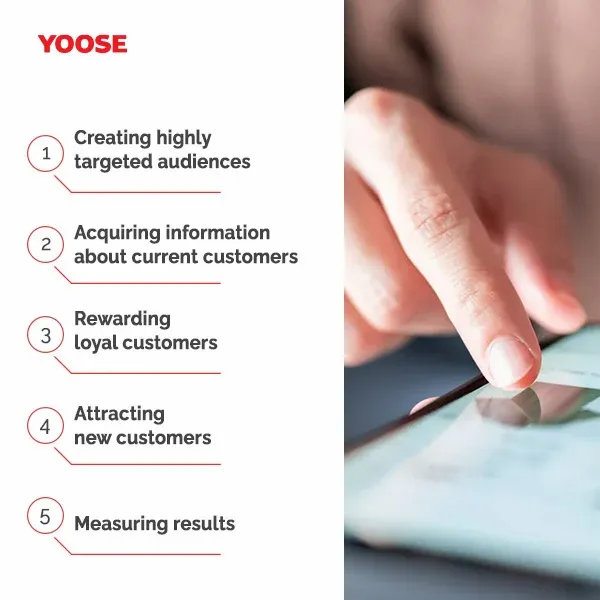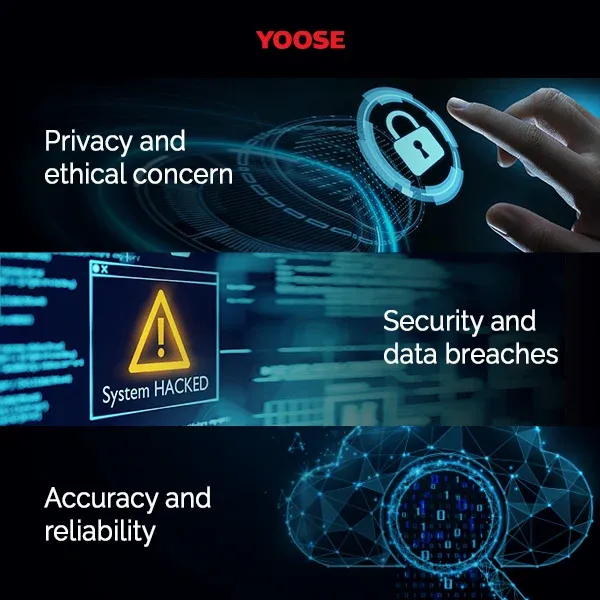What is geolocation data?
Geolocation data is a type of data that allows for determining the location of any person or object on Earth. It is usually generated from signals from electronic devices, such as smartphones, connected cars, or smart watches.
Geolocation data has various applications, such as providing directions, weather forecasts, fitness tracking, gaming, law enforcement, travel, and pandemic response. However, one of the most common and effective applications of geolocation data is in marketing.
Tools and techniques to leverage geolocation data
- Geo-fencing
Geo-fencing involves establishing a virtual boundary around a specific location and monitoring when users enter or exit that area. Marketers can use geo-fencing to send push notifications, SMS messages, or emails to customers who are within a certain radius of their store or service with relevant offers or promotions.
- Geo-targeting
Geo-targeting involves displaying different ads or content to users based on their IP address or GPS location. Marketers can use geo-targeting to tailor their messages to different regions, countries, cities, or neighborhoods based on their demographics, culture, climate, or preferences.
- Beacons
Beacons are small devices that emit Bluetooth signals that can be detected by nearby mobile devices. Marketers can use beacons to send personalized messages to customers who enter their store or location based on their previous purchases or browsing history.
- Augmented reality
Augmented reality involves overlaying digital information or images on top of physical objects or locations using a mobile device’s camera. Marketers can use augmented reality to enhance the customer experience by providing additional information, entertainment, or interactivity.
What can marketers get from geolocation data?
- Creating highly targeted audiences
Geolocation data enables marketers to connect with customers who are in close physical proximity to their business, making their offers more attractive and timely.
- Acquiring information about current customers
Geolocation data can assist marketers in acquiring more information about their customers’ behavior, preferences, and needs based on their location data. This can help them improve their products, services, and customer experience.
- Rewarding loyal customers
Geolocation data can facilitate marketers in rewarding their loyal customers with special offers, discounts, or rewards based on their location or frequency of visits.
- Attracting new customers
Geolocation data can aid marketers in attracting new customers who are nearby or who have similar interests or needs as their existing customers.
- Measuring results
Geolocation data can enable marketers to track and measure the effectiveness of their campaigns based on location data, such as conversions, foot traffic, dwell time, and ROI.
How to collect geolocation data?
Geolocation data can be derived from various sources, such as GPS, WiFi, IP address, or geofencing. GPS works by triangulating a location signal between the device emitting it, a nearby ground-based detection station, and a satellite out in space. WiFi tracking works by using the unique identifier of a user’s mobile device to track their location. Geofencing works by establishing a virtual boundary around a specific location and using mobile devices to monitor when users enter or exit that area. IP address tracking works by using the IP address of a user’s device to determine their location.
How to use geolocation data wisely?
- Recognize the significance of geolocation data in acquiring insights into your customers’ behavioral and preferential patterns based on their location.
- Select the appropriate methods and tools for collecting geolocation data that align with your business objectives and adhere to privacy regulations.
- Examine geolocation data to discern patterns and trends in your customers’ location-based behavior and needs.
- Customize your marketing efforts by developing targeted and relevant campaigns based on geolocation data.
- Enhance your advertising efforts by focusing on specific geographic locations with your ads.
Challenges and risks
- Privacy and ethical concern
Geolocation data can disclose confidential or personal information pertaining to an individual’s location, behavior, preferences, and lifestyle. Users may lack awareness of the methods and purposes of geolocation data collection, utilization, dissemination, or retention by marketers or third parties. Users may also be deprived of the option to provide or withdraw consent for geolocation-based marketing or to adjust their privacy settings.
- Security and data breaches
Geolocation data can be compromised by hackers or unauthorized parties who may employ it for nefarious purposes, such as impersonation, fraud, stalking, harassment, or physical violence. Marketers should ascertain that they secure their users’ location data with encryption, authentication, and other security measures.
- Accuracy and reliability
Geolocation data may vary in accuracy or reliability, depending on the origin, technique, or device used to acquire it. Factors such as GPS signal intensity, network accessibility, device configurations, or user conduct can influence the quality and precision of location data. Marketers should corroborate and validate their location data prior to using it for their campaigns.
Privacy regulations
Some examples of privacy regulations that apply to geolocation data are the General Data Protection Regulation (GDPR) in the European Union (EU), the California Consumer Privacy Act (CCPA) and the California Privacy Rights Act (CPRA) in California (US), and the Washington Privacy Act (WPA) in Washington (US). These regulations generally require marketers to obtain users’ consent before collecting or using their geolocation data (unless there is a legitimate reason for doing so), provide users with clear and transparent information about how their geolocation data is handled (including the purpose, duration, recipients, and rights of the users), allow users to access, correct, delete, or restrict their geolocation data (including the right to opt-out of the sale of their geolocation data), and implement appropriate technical and organizational measures to safeguard their geolocation data (including the obligation to report any data breach).
Geolocation data is a powerful tool that can assist marketers in optimizing their strategies and budgets and creating personalized and relevant campaigns that resonate with their customers and drive sales. However, geolocation data also entails careful and responsible handling to protect the privacy and security of users. By utilizing geolocation data in a smart and ethical manner, marketers can obtain a competitive advantage and create meaningful and memorable interactions with their customers.






























